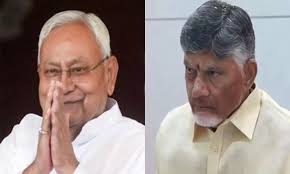Mumbai: The Waqf Amendment Bill 2024 was passed in the Lok Sabha with 279 votes in favor and 154 against. Surprisingly, the Telugu Desam Party (TDP) and Janata Dal United (JD-U), parties that have historically relied on Muslim votes, supported the bill. Their backing ensured its passage, despite opposition efforts to block it. Had they withdrawn support, the government could have lost its majority, preventing the bill’s approval.
The bill is seen as a direct move to bring Waqf properties under government control. India has approximately 800,000 acres of Waqf property worth over ₹1.2 trillion, with over 70% under illegal occupation. Many mosques, madrasas, and shops have rents far below market rates due to legal constraints. Historically, these properties were endowed for religious and welfare purposes, but this new legislation is expected to further weaken minority institutions financially and administratively.
The betrayal by JD(U) and TDP is particularly striking given their Muslim voter base—30% in Bihar and 18% in Andhra Pradesh. Their decision to align with the BJP on this issue has drawn sharp criticism. This is not the first instance of such betrayal; JD(U) had previously backed the Citizenship Amendment Act (CAA) in 2019, and TDP had allied with the BJP in 2014 despite its policies affecting Muslims.
Legal experts and community leaders argue that the bill violates constitutional provisions, particularly Articles 25, 26, and 30, which safeguard religious freedom and minority rights. Critics compare this law to an institutional attack on all Waqf properties, similar to how the Babri Masjid case affected a single mosque.
Muslim leaders emphasize the need for political awareness and strategic voting. They argue that reliance on so-called secular parties has repeatedly resulted in disappointment. Calls for Muslim unity, independent political representation, and stronger leadership are growing louder.
Opposition parties, including Congress, Samajwadi Party, Trinamool Congress, DMK, and Shiv Sena (Uddhav Thackeray faction), actively opposed the bill and received praise for their stance.
The fate of Waqf properties now rests on the community’s response. If Muslims mobilize, reject unreliable allies, and prioritize their political and economic strength, they may still secure their rights.




